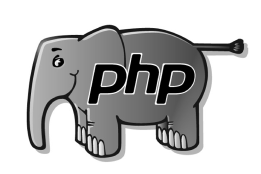Our client aimed to enhance its systems, capabilities, and operations and optimise its user interface for enhanced performance. Our experts collaborated closely with the client to refine the autonomous driving systems, enabling operation with greater precision, efficiency, and safety. We assisted in upgrading the technological infrastructure and streamlined the IT operations with the help of AI and digital transformation.
The AUTO UNION Group is among the world’s top 40 automotive parts suppliers, with over a 100 years of development and manufacturing of lighting and electronic components. AUTO UNION is at the frontier of research and development with over €7 billion in sales in the fiscal year 2017/2018 and 40,000+ staff members spread across 35 countries. The company engineers electronic solutions that increase energy efficiency, minimise CO2 emissions, and enhance driver and passenger safety and comfort.
Before the inception of the project, automotive manufacturers faced a significant challenge in acquiring high-quality datasets for their advanced detection systems. These systems, crucial for ensuring pedestrian safety and detecting road obstacles, relied heavily on accurate training data to function effectively. Automotive companies encountered difficulties in obtaining comprehensive datasets for their detection systems. Manual annotation of objects in videos, a necessary step in dataset creation, was a time-consuming and labor-intensive process.
Additionally, the absence of standardized processes for dataset creation impeded collaboration between automotive companies and their technology partners.
The client needed a comprehensive solution that could streamline the dataset creation process, improve collaboration, and enhance the performance of detection systems in automobiles.
Computools addressed these challenges with a comprehensive set of solutions. The technology stack received a significant upgrade, improving the autonomous driving system’s database and front-end performance. Our engineers optimised the front-end features, enhancing the user interface to improve overall system efficiency and performance. We established and trained an AI system, ensured the precision of obstacle detection software, and implemented functional features in the AI-powered autonomous driving system.
By optimising the autonomous driving system and streamlining IT operations, we helped the client achieve a reduction in delivery times. This improvement in operational efficiency enabled the client to handle higher volumes of logistics tasks with greater speed and accuracy. Our focus on optimising the user interface led to an increase in customer satisfaction ratings. The improved usability and performance of the system resulted in a smoother and more intuitive experience for end-users, leading to higher levels of satisfaction and loyalty.
Computools’ industry expertise, proven track record, efficient outstaffing model, commitment to quality, and responsive communication set them apart as the preferred partner for AUTO UNION’s project.
Computools ensured a seamless transition upon project completion by providing comprehensive documentation and ongoing support. Current arrangements involve maintaining an open line of communication and addressing any post-implementation needs.
The client had an inefficient technology stack and a demanding development schedule. The existing database and front-end technologies slowed system performance, creating obstacles that required strategic solutions. The overly complex front-end features posed a challenge, demanding simplification and optimisation for enhanced system efficiency.
When AUTO UNION needed a contractor, they carefully considered a few options. They wanted someone with a strong background in AI and automotive industry. After looking at different contractors, they chose Computools for the following reasons.
Since the client’s primary expertise lies in hardware development, testing and manufacturing, Computools experts were invited to join the distributed team working on an artificial intelligence component for an autonomous-driving system.
As a part of an internationally distributed team, Computools engineers used their expertise to upgrade the AI-powered autonomous driving system and ensure the precision of obstacle detection software. As a result of close collaboration, AUTO UNION Group achieved the outset development objectives.
PHP
PHP is a server-side scripting language commonly used for web development. It is embedded within HTML and is well suited for creating dynamic web pages.

Symfony
Symfony is a PHP web application framework. Version 2.8 is a specific release of Symfony providing a set of reusable PHP components and a web application framework to facilitate the development of complex, robust applications.
Microsoft Azure
Microsoft Azure is a cloud computing platform and service provided by Microsoft. It offers a wide range of services, including virtual computing, storage, analytics and networking, allowing businesses to build, deploy, and manage applications through Microsoft's global network of data centres.

Amazon S3
Amazon Simple Storage Service (S3) is a scalable object storage service that Amazon Web Services (AWS) provides. It allows users to store and retrieve any data any time, providing a highly durable and available storage infrastructure.
FFmpeg
FFmpeg is a multimedia framework that can encode, decode, transcode, and stream audio and video files. It includes a set of libraries and tools for handling multimedia data.
CouchDB
Apache CouchDB is an open-source NoSQL database with a document-oriented approach. It stores data in JSON-like documents and provides a RESTful HTTP API for querying and manipulating these documents.
RabbitMQ
RabbitMQ is an open-source message broker software that facilitates communication between distributed systems. It implements the Advanced Message Queuing Protocol (AMQP) and provides a reliable way for different components of a system to communicate asynchronously.

XHPROF
XHProf is a profiling tool for PHP applications. It helps developers analyse the performance of their code by measuring the execution time and memory usage of various application parts.
Angular
AngularJS is a JavaScript-based open-source front-end web application framework. Version 1.6 refers to a specific release, and ES6 (ECMAScript 2015) is the sixth edition of the ECMAScript standard, bringing new features and improvements to JavaScript.

Canvas
HTML5 Canvas is a drawing surface that allows the dynamic rendering of graphics and images on a web page using JavaScript. It is commonly used for creating interactive graphics and animations.

Paper.js
Paper.js is an open-source vector graphics library built on the HTML5 Canvas. It simplifies the creation of complex graphics and interactive content in web applications.

Pouch
PouchDB is an open-source JavaScript database designed to work offline. It can store data locally and synchronise with a remote database when the device is online, making it suitable for applications that require offline access.
The Scrum approach was chosen for this project to secure fast-paced development and cohesive collaboration across the internationally distributed team. Daily scrums were held to assess development progress and address any arising challenges. The Scrum Master assigned tasks, tracked their progress, and managed resources through Jira, while Computools’ Project Manager enabled seamless communication and strict schedule adherence by our software engineers.


We are contented with the results delivered by Computools. Their attention to details and dedication to meeting our requirements have been exceptional. We highly recommend their services to anyone looking for top-notch Software Engineering solutions.